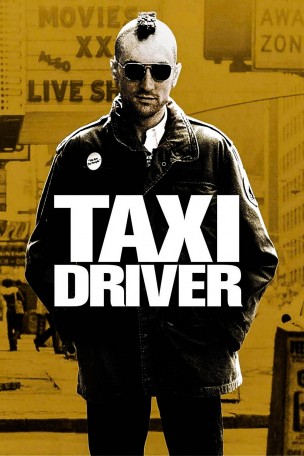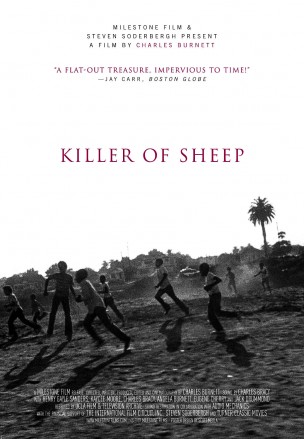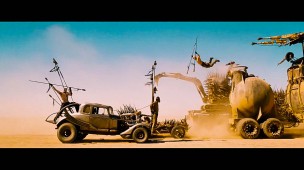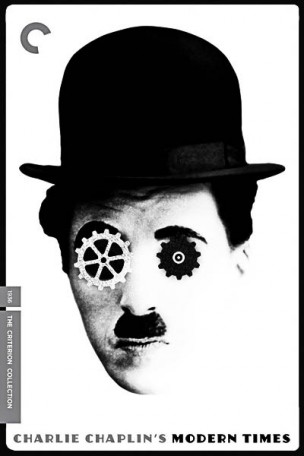This week the Film Series offers trips to Valhalla and Westeros.
Drop/Add is coming to a close, classes are gearing up for the semester, and, apart from a few surprise storms, things are back to business. Luckily, the Film Series is here to snap you out of everyday life in Middletown and take you on a breakneck journey through time and space. After visiting New York and Los Angeles in the 1970’s, we’re bringing you on a joyride through the post-apocalyptic Outback before high-tailing it back to the assembly lines and desperate times of the Great Depression. Additionally, as if this weeks’ lineup was not enough, the Office of Student Affairs is teaming with the College of Film & the Moving Image to bring Westeros to Wesleyan this Saturday, Sept. 19 at 10 p.m. Come see the first two episodes of “Game of Thrones” in the Powell Family Cinema in the first of a weekly series that will run through the second season.
“Taxi Driver”
1976. USA. Martin Scorsese. With Robert De Niro, Jodie Foster. 113 min.
Wednesday, September 16. 8pm. $5.
A penetrating character study and an incisive social critique, Scorsese’s “Taxi Driver” documents the struggles of cabbie Travis Bickle (De Niro), a veteran whose misguided struggle to make meaningful connections leads him to desperate measures in the name of vigilante justice. Working with a screenplay by Paul Schrader, who pays tribute to a wide variety of influences from the minimalist, moral films of Robert Bresson to Dostoyevsky’s “Crime and Punishment,” Scorsese’s unsparing depiction of Bickle’s mental decline is upsetting and deeply human. Supporting the weight of the film’s world is De Niro, who spent weeks as a cab driver in Manhattan in preparation for what would become perhaps his most iconic role.
“Killer of Sheep”
1978. USA. Dir: Charles Burnett. With Henry G. Sanders. 80 min. 35mm print.
Thursday, September 17. 8PM. Free.
Charles Burnett is a name you might not have heard before, but The Chicago Tribune considers him “one of America’s very best filmmakers,” while The New York Times calls him “the nation’s least-known great filmmaker and most gifted black director.” Among Burnett’s foremost concerns are history’s effect on the structure of the family, the denunciation of African-American stereotypes, liberation, and pure emotion. This is his knockout debut, a bastion of independent cinema that might just shift the way you understand the film form. Here we see Italian neorealism seeping deep into the pores of Los Angeles’s Watts district, and watch a collection of poetic vignettes unfold as a tired slaughterhouse worker tries to direct the course of a life weighed down by outside forces.
“Mad Max: Fury Road”
2015. USA. George Miller. With Tom Hardy, Charlize Theron. 120 min.
Friday, September 18. 8pm. $5. In 3D.
Don’t let George Miller’s résumé fool you. Long before directing “Babe: Pig in the City” and the “Happy Feet” series, the Australian-born director made his name with three revolutionary post-
apocalyptic westerns about perennial loner “Mad” Max Rockatansky and his adventures in the wasteland. In the fourth installment in his tale—the first in thirty years—Max (Hardy) finds himself inadvertently roped into the cause of Imperator Furiosa (Theron). Furiosa is a lieutenant to the maniacal Immortan Joe who betrays her warlord in order to rescue his five wives and bring them to the “Green Place.” True to the tone of the first three entries, and refreshing in its use of practical stunts and effects, this resurrection of a storied series is a visually splendid two-hour chase scene jam-packed with action, suspense, and flame-throwing guitars.
“Modern Times”
1936. USA. Dir: Charles Chaplin. With Chaplin. 87 min. 35mm print.
Saturday, September 19. 8PM. Free.
From the iconic opening sequence featuring a hilarious encounter with an assembly line, to the brisk and poetic close of the film, this is your chance to see Charlie Chaplin at his best. A true rebel, Chaplin made this silent film well into the days when “talkies” were the talk of the town. His massive popularity and impressive talent meant a studio budget and directorial control deep within the throes of the Great Depression. It’s from this vantage point that he launches his riotous critique of industrialism in the way that only he could—filled with fun and laughs from brim to brim. This is Chaplin’s last appearance as his iconic Little Tramp persona. It’s also one of his greatest artistic achievements.




Comments are closed